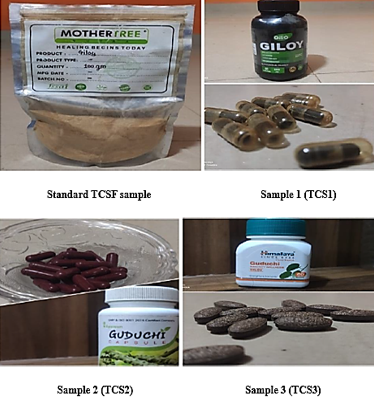- Printed Journal
- Indexed Journal
- Refereed Journal
- Peer Reviewed Journal

Journal of Pharmacognosy and Phytochemistry
Vol. 14, Issue 5 (2025)
Comparative HPTLC fingerprint profiling of metabolites in Tinospora cordifolia commercial samples
Sasikala S, Godavari A, Tharanidevi N and Sabarish S
This study employed a comprehensive quality assessment approach to evaluate the phytochemical composition and authenticity of market samples of Tinospora cordifolia using standard analytical techniques. Organoleptic and physicochemical parameters were analysed for a standard sample (TCSF) and three commercial samples (TCS1, TCS2, TCS3) of Tinospora cordifolia. While most samples met general quality control standards, specific deviations were identified such as sample TCS3 showed significant weight variation, and TCS2 exhibited high loss on drying (8.1%) and elevated acid-insoluble ash content (3.62%), suggesting potential adulteration with inorganic matter. Preliminary phytochemical screening confirmed the presence of bioactive constituents like alkaloids, flavonoids, tannins, and saponins, with the standard (TCSF) and TCS1 containing the highest number of compounds and TCS3 the fewest. All samples were weakly acidic, a property that may enhance bioavailability in the gastrointestinal tract. High-Performance Thin Layer Chromatography (HPTLC) fingerprinting at 254 nm and 366 nm enabled detailed chemical profiling, with TCS1 demonstrating a banding pattern and Rf values most consistent with the reference standard. In contrast, TCS3 showed limited phytochemical diversity and low band intensity. The results underscore the utility of integrated analytical profiling in differentiating authentic Tinospora cordifolia products from substandard or adulterated market samples. Among the samples tested, TCS1 was identified as the most authentic, while TCS2 and TCS3 indicate quality concerns requiring further regulatory scrutiny.

Fig. 1: Tinospora cordifolia Standard and samples
Pages: 92-101 | 603 Views 33 Downloads







